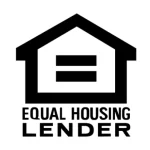
Should I wait to buy a house?
Should I wait for prices and mortgage rates to go down?
Should I wait to buy a house or should I buy a house now?
That is the question many people are asking themselves right now.
First question, what’s more important?, Lower Home Prices or Mortgage Rates?
Rising interest rates can make the difference between locking in the home of your dreams today or being locked out tomorrow!
Since higher mortgage rates make home buying more expensive for buyers, you might think that home prices would tend to fall during high rate climates in order to compensate for those costs. Unfortunately, that is not always (or even usually!) the case. There have been many instances over the past 40 years when interest rates have dramatically spiked and home prices have continued to see strong upward movement as we are now seeing in this current market. Back in April 1999 mortgage interest rates on 30-year fixed rate loans averaged 6.92% but jumped up to 8.52% by May 2000. Over that same period home prices skyrocketed 10.9%. Historical data suggests that there is not much correlation between home prices and interest rates at all.
You may be watching to see if interest rates begin falling or if home prices will continue to rise in the next few months or years. No one really knows what the housing market and interest rates will really do in the future but one thing we all know for sure is, trying to time the market just right is almost impossible. It is best to buy when you can comfortably afford the payments, instead of waiting for a magic market moment.
For example, say you decide to buy a $200,000 home when the average interest rate is 4.5%. If you contribute a 20% down payment ($40,000), your monthly P&I payments would be $811 and your total interest costs over the life of the loan would be $131,851.
But what if you wait a few months or a year and rates rise to 5% while the property price slips to $190,000. Your 20% down payment would fall to $38,000 but your monthly P&I payment would rise to $816. Over the course of the loan you would spend $141,749 in interest, $10,000 more than in the first example.
In these situations, it seems the interest rate is a bigger influence on your overall costs, but there are several more things to consider. Buying a less-expensive home, can bring down your down payment and for many first-time buyers that difference in upfront cash can be huge. If the down payment rises too high because of home price, you may be squeezed out of the market.
It is also important to note that is not possible to change your home price once the sale is final, but it is possible to change your rate through refinancing. Buying a less-expensive home with a higher rate could pay off if you are able to refinance into better terms in the future.
And of course, buyers should consider how long they plan to stay in the home. Most homeowners move within 10 years of purchasing. Higher interest rates are easier to stomach if you are only going to be making those payments for a few years.
When it comes to deciding whether to look for the lowest home price or the lowest rate, which one is more important will depend on your personal situation. I can help you figure out which one will better help you afford homeownership.
You can use this interactive Rate and Payment Calculator to see the difference in mortgage payments as rates change. MORTGAGE PAYMENT DIFFERENCE
Call me today to get Home Buyer Ready with a Fully Underwritten Pre-approval 904-712-1500 or email me.
More than just great rates!
Leo Namiot
Trusted Mortgage Lender Since 2003

